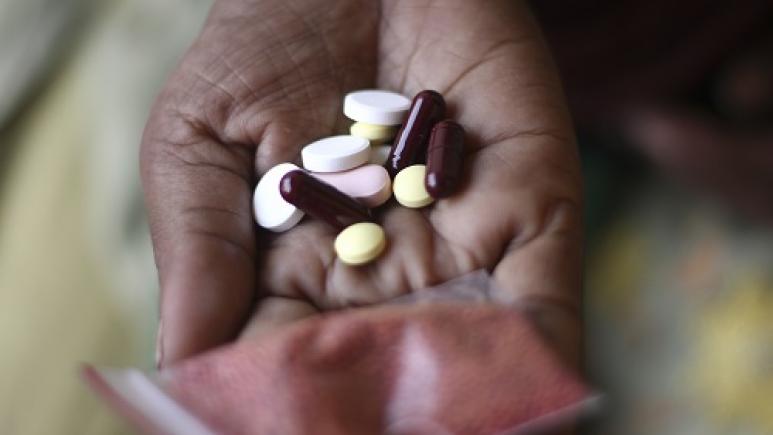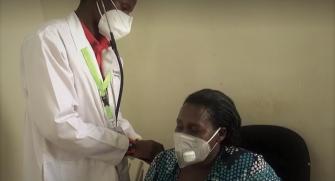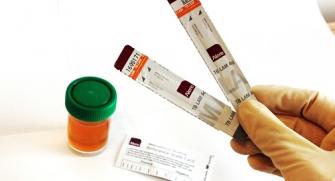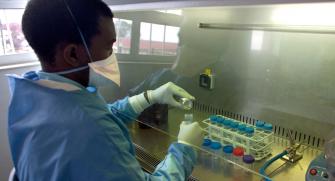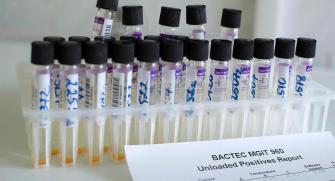Good safety and efficacy of anti-tuberculosis treatments containing bedaquiline or delamanid, administered alone or concomitantly
Today, one of the major challenges in controlling tuberculosis is the treatment of resistant forms of the disease, i.e. forms for which first-line drugs are not effective. Increasingly common, these forms of tuberculosis were until recently only treated with treatments that are long, not very effective, and cause significant side effects, including permanent deafness. Recently, two antibiotics, bedaquiline and/or delamanid, have been shown to be effective in treating multidrug-resistant TB. In addition, these two molecules are administered orally, unlike some of the previous treatments which were injectable. Although WHO has recommended the use of these drugs, there is still a way to go to improve their access, but also to better understand their actions in interaction with other drugs. This is the aim of the endTB project (Expand new drug markets for TB), which brings together Médecins Sans Frontières (MSF), Partners In Health (PIH) and Interactive Research and Development (IRD) with funding from Unitaid. In this context, Helena Huerga, epidemiologist at Epicentre, is coordinating an observational study that has followed 2,300 patients in 17 countries* to evaluate the safety and the efficacy of bedaquiline and delamanid when administered alone or concomitantly with other second-line anti-tuberculosis molecules.
"The endTB observational study is large prospective study that has collected high-quality data from patients with multi-drug resistant tuberculosis from a variety of settings" said Helena Huerga.
Evaluate the efficacy and safety of new combination therapies
"Among almost 2,300 patients who received either bedaquiline or delamanid as part of treatment regimens for multi-drug resistant tuberculosis, the most common clinically important adverse events noted were peripheral neuropathy in 26.4% of patients, electrolyte depletion in 26% of patients, and hearing loss in 13.2% of patients," said Cathy Hewison, MSF's tuberculosis advisor and who is also an investigator in this study.
Adverse events appear to be most common in patients who also received injectable drugs (kanamycin, amikacin and capreomycin) and linezolid. These data therefore support the new WHO guidelines which to limit the use of injectable drugs for exceptional cases only.
“What we can learn from this study of the largest cohort of patients treated with bedaquiline and delamanid to date is the good safety of these two molecules to treat resistant tuberculosis”, notes Helena Huerga. “This should also have implications for the early discontinuation of treatments often motivated by adverse events.”
There was also a question of the safety and efficacy of concomitant administration of bedaquiline and delamanid, an alternative considered promising for treating patients infected with TB strains strains of TB that are resistant or who cannot tolerate other therapies.
“In the endTB observational study, 472 patients received these two drugs concomitantly along with other second-line anti-TB drugs such as linezolid and clofazimine, and were followed until the end of their treatment. Our results are reassuring concerning the potential cardiotoxic risk of administering these two molecules," explains Helena Huerga. Moreover, the concomitant use of bedaquiline and delmanid as part of multi-drug resistant tuberculosis regimens is not only safe, but also effective for treating patients with extensive disease. The concomitant administration of these two molecules is a good therapeutic option for patients with resistance to many anti-tuberculosis drugs.
Further analyses of the patients included in the endTB observational study are now continuing to determine the safety and efficacy of the prolonged use of these two molecules as well as when administered in children and pregnant women.
* Armenia, Bangladesh, Belarus, Ethiopia, Georgia, Haiti, Indonesia, Kazakhstan, Kenya, Kyrgyzstan, Lesotho, Myanmar, North Korea, Pakistan, Peru, South Africa, and Vietnam
credit photo : Bithin Das







